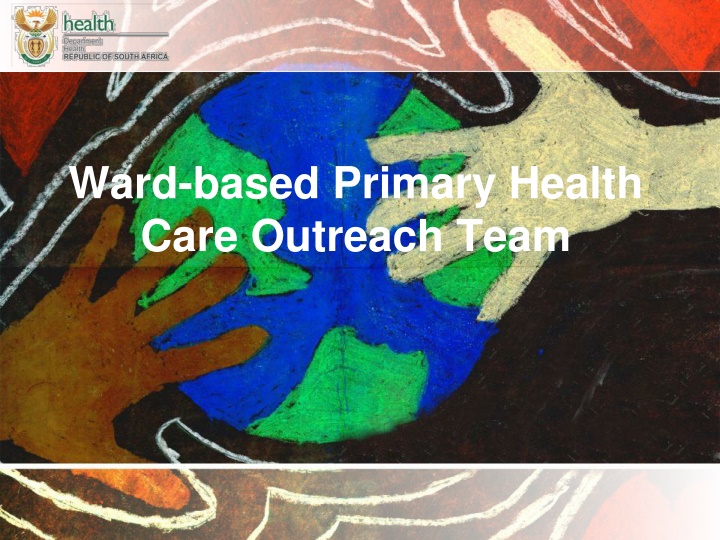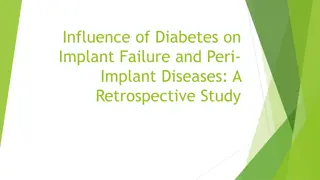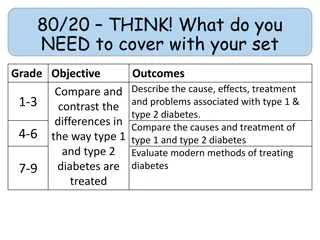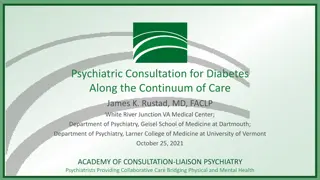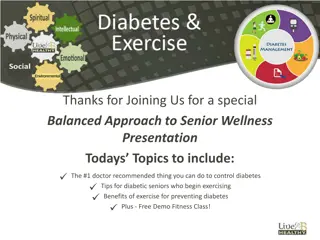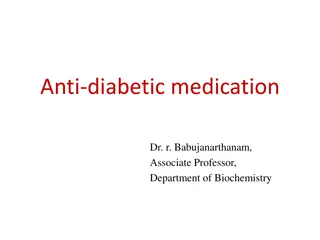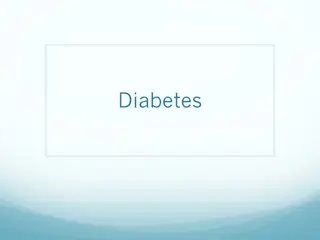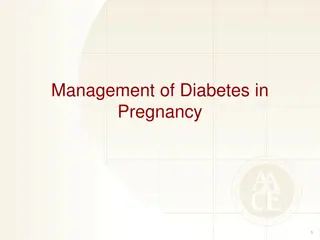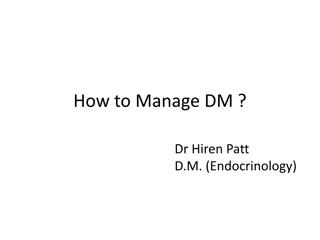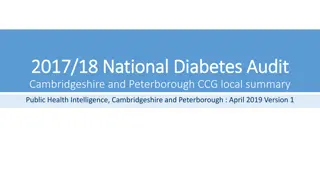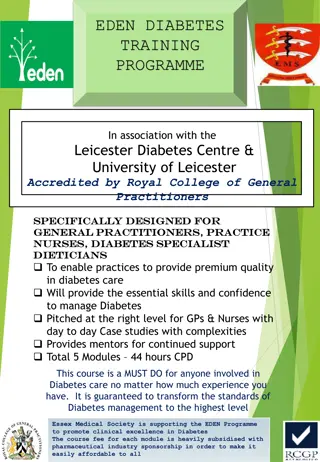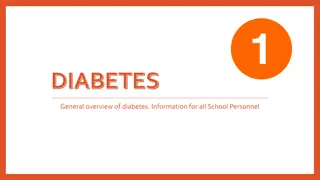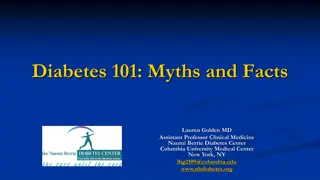Diabetes Awareness and Prevention: Community Health Worker Training
This resource provides valuable information on diabetes, its risks, prevention strategies, and the role of Community Health Workers (CHWs) in educating and supporting individuals at risk. Learn about diabetes, its dangers, signs, and symptoms, and understand how it can impact those who are HIV-positive. Gain insights on managing diabetes and promoting healthy lifestyles through proper education and outreach.
Download Presentation

Please find below an Image/Link to download the presentation.
The content on the website is provided AS IS for your information and personal use only. It may not be sold, licensed, or shared on other websites without obtaining consent from the author.If you encounter any issues during the download, it is possible that the publisher has removed the file from their server.
You are allowed to download the files provided on this website for personal or commercial use, subject to the condition that they are used lawfully. All files are the property of their respective owners.
The content on the website is provided AS IS for your information and personal use only. It may not be sold, licensed, or shared on other websites without obtaining consent from the author.
E N D
Presentation Transcript
Ward-based Primary Health Care Outreach Team
Community Health Worker Training Phase 2
Lesson 5 Diabetes
Role of the CHW Explain to household members what diabetes is Discuss with household members the importance of knowing what the dangers of diabetes are Know how to lower the risk for diabetes, including healthy eating, exercising often, not smoking and avoid drinking alcohol Check household members risk for diabetes, using risk factors Support those household members who have risk factors for diabetes to lower their risk Know the signs and symptoms of diabetes Refer household members who have symptoms of diabetes and encourage them to go to the clinic as soon as possible Understand how HIV-positive household members are affected by diabetes
Learning Objectives Understand diabetes and the dangers of diabetes if it is not controlled Describe who is at risk of diabetes Discuss the signs and symptoms of diabetes Explain how diabetes can be prevented Understand how diabetes affects people who are HIV- positive
What is diabetes? An illness where the body is not able to control the levels of sugar in the blood, leading to too much sugar being present in the blood In healthy people, a hormone called insulin helps the cells in the body to use the sugar for giving us energy When a person has diabetes, the body makes too little insulin or the insulin does not work well or the cells cannot absorb insulin This means that the sugar cannot go into the cells to give us energy. The sugar stays in the blood
Dangers of diabetes The kidneys can stop working properly The heart can be damaged The person s eyesight can be affected Sores and wounds (especially on the feet) do not heal well If the sugar is too high or too low it can affect the person s brain, causing them to go into a coma
Risk for diabetes A family history of diabetes People who are overweight and carry most of their weight around their stomach area Older than 40 years Smoking or living in a house where people smoke High blood pressure High cholesterol Not exercising For women: Giving birth to a baby that weighed over 4kg at birth Having diabetes during the pregnancy
How will someone know that they have diabetes? Do you feel very thirsty? Do you urinate a lot? Do you feel very tired a lot of the time? Do you feel very hungry a lot of the time? Are you losing weight without trying to? Do you have blurry eyesight? Do you have dry, itchy skin? Do you have sores that take a long time to heal? Are you losing feeling or getting a tingling feeling in your feet? Is there itchiness in the vagina or penis?
Important A healthy lifestyle will lower a person s risk for diabetes
Types of diabetes Type 1 diabetes: the body does not make any insulin at all Type 2 diabetes: the body still makes some insulin but the insulin may not be enough or the cells may not be able to absorb the insulin Gestational diabetes: found for the first time when a woman is pregnant
How can diabetes be prevented? For Type 2 diabetes: If overweight, try and lose some weight Stop smoking Avoid drinking alcohol Eat a healthy diet Exercise for at least 30 minutes 5 times a week Avoid sugary foods, sweets, chocolates, gassy drinks Go for regular check-ups
Healthy eating hints Avoid sugary foods, sweets, chocolates, gassy drinks Eat smaller meals, more often Eat the right type and amount of starches Eat less fatty or fried food Avoid drinking alcohol
Activity: Small Group Discussion Discuss the following: What are the signs of diabetes? What can be done to prevent Type 2 diabetes?
How to test for diabetes? Healthcare worker will ask for urine sample They may do a finger prick test to check the level of sugar in the blood
Can diabetes be treated? Take all medicine as prescribed by the doctor Exercise Follow a good eating Test blood sugar Keep asking questions and try to learn as much about diabetes as possible Always carry something in the purse or wallet that says they are a diabetic
How someone who is HIV-positive is affected by diabetes? Some ARVs, especially the older ARVs, have been linked with an increased risk of diabetes Ask HIV-positive household members to speak to the healthcare workers about what their risk is for developing diabetes As people with HIV get older, their chances of getting Type 2 diabetes increase Follow the same tips for preventing diabetes as for HIV- negative people
Activity: Small Group Discussion The Community Health Worker, Nombeka, is visiting the Dhlomo family. The Dhlomo household is made up of Mr. Dhlomo, who is 39 years old, Mrs. Dhlomo who is 32 years old, their six year old son and Mr. Dhlomo s mother who is 61 years old. The reason for Nombeka s visit is to check if Gogo Dhlomo has been to the clinic to get her medicine for her high blood pressure. Nombeka gets to the household at around lunch time. She sees Gogo Dhlomo frying chips for lunch. Gogo has put some white bread on the table. She also notices that Mr. Dhlomo is sitting outside with some friends drinking Mahewu. Mrs. Dhlomo is about 8 months pregnant. She complains to Nombeka that she is feeling very tired and thirsty all the time.
